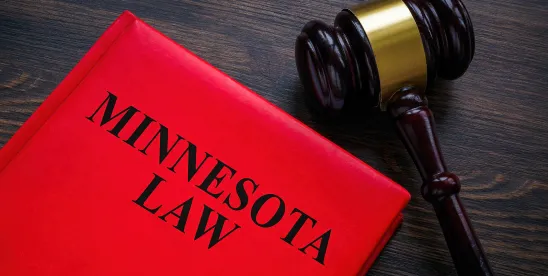On May 19, 2025, the Minnesota Legislature’s regular session adjourned without completing the two-year budget, leaving a long list of outstanding bills in limbo. The Minnesota Legislature will now enter a special session to tackle unfinished business. Despite the regular session’s anti-climactic ending, state lawmakers managed to pass a handful of bills that have been signed by Governor Tim Walz and will create new obligations for employers.
Quick Hits
- Minnesota’s regular legislative session adjourned on May 19, 2025, but a special session is expected to convene soon to complete remaining budgetary matters.
- Governor Walz signed the Brady Aune and Joseph Anderson Safety Act, imposing new requirements on employers with commercial scuba divers.
- The legislature amended Minnesota’s medical cannabis law, among other laws, which creates new obligations for employers.
- Other significant proposed bills aimed at amending existing labor and employment laws failed to make it to Governor Walz’s desk for approval.
Brady Aune and Joseph Anderson Safety Act
A new statute, Minn. Stat. § 182.679, titled the “Brady Aune and Joseph Anderson Safety Act,” applies to “persons who are conducting self-contained underwater breathing apparatus (scuba) diving at a place of employment while making improvements to the land, including the removal of aquatic plants” took effect May 2, 2025. Under this new statute, which is included in the Minnesota Occupational Safety and Health Act (Minn. Stat. § 182), employers:
- may not allow an individual to scuba dive unless the individual has an acceptable open-water scuba diver certificate;
- must require certain equipment when an individual is scuba diving;
- must ensure that a standby diver is available while a diver is in the water; and
- must ensure all individuals scuba diving or serving as standby divers are trained in CPR and first aid.
An employer may be cited by the commissioner of labor and industry for violations under this statute.
Amendments to Minnesota’s Medical Cannabis Law
Minnesota’s medical cannabis law (Minn. Stat. § 342.57) went into effect on March 1, 2025, and prohibits employers from discriminating against a person in hiring, termination of employment, or any term or condition of employment if the discrimination was based on the person’s enrollment in a cannabis registry program. It also prohibits employers from taking adverse action against an employee for a positive drug test for cannabis components or metabolites, unless the employee used, possessed, sold, transported, or was impaired by medical cannabis flower or a medical cannabinoid product on work premises, during working hours, or while using an employer’s vehicle, equipment, or machinery. These protections apply unless compliance would violate federal or state laws or regulations or cause an employer to lose a monetary or licensing-related benefit under federal law or regulations.
Senate File (SF) 2370 / House File (HF) 1615 amended Minnesota’s medical cannabis law in several ways, including:
- expanding the protection of this bill to cover employees who are enrolled in a Tribal medical cannabis program. Thus, an employer may not take any adverse action against an employee based on the employee’s enrollment in this type of program;
- requiring an employer to notify employees at least fourteen days before the employer takes an adverse employment action due to the specific federal law or regulation the employer believes would be violated if it does not take the action and the monetary or licensing-related benefit the employer would lose if it does not take the action;
- prohibiting employers from retaliating against an employee for asserting the employee’s rights or seeking remedies under the Minn. Stat. §§ 342.57 or 152.32;
- increasing the civil penalty for violating Minn. Stat. §§ 342.57, subds. 3, 4, or 5 from $100 to $1,000.
- giving employees the option to seek injunctive relief to prevent or end a violation of Minn. Stat. §§ 342.57, subds. 3 to 6a.
Governor Walz signed the bill on May 23, 2025, and it took effect the following day.
Amendments to Wage Theft and Whistleblower Laws
On May 23, 2025, Governor Walz also signed bills that amended Minnesota’s wage theft and whistleblower statutes.
Wage Theft: SF 1417 / HF 2432 amends Minn. Stat. § 388.23 to give the county attorney (or deputy attorney if authorized by the county attorney in writing) the authority to subpoena and require the production of records of an employer or business entity that is the subject of or has information related to a wage theft investigation, including: accounting and financial records (such as books, registers, payrolls, banking records, credit card records, securities records, and records of money transfers); records required to be kept pursuant to section 177.30, paragraph (a); and other records that relate to the wages or other income paid, hours worked, and other conditions of employment or of work performed by independent contractors, and records of any payments to contractors, and records of workers’ compensation insurance.
SF 1417 / HF 2432 will go into effect on August 1, 2025.
Whistleblowers: SF 3045 / HF 2783: Amends Minn. Stat. § 181.931 (Minnesota’s whistleblower law) to add definitions of “fraud,” “misuse,” and “personal gain”:
- “Fraud” means an intentional or deceptive act, or failure to act, to gain an unlawful benefit.
- “Misuse” means the improper use of authority or position for personal gain or to cause harm to others, including the improper use of public resources or programs contrary to their intended purpose.
- “Personal gain” means a benefit to a person; a person’s spouse, parent, child, or other legal dependent; or an in-law of the person or the person’s child.
SF 3045 / HF 2783 will go into effect on July 1, 2025.
Looking Ahead
Several omnibus bills include provisions that, if enacted, would amend Minnesota’s meal and rest break law, add employer unemployment insurance fraud penalties, make “political activity” a new protected characteristic under the Minnesota Human Rights Act, revise Minnesota Paid Family and Medical Leave and Earned Sick and Safe Time laws, and create valid circumstances for noncompete agreements. However, when the regular session ended, these bills were stranded in the legislative pipeline, awaiting potential revival in the special session.
The legislature has until July 1, 2025, to enact the rest of its budget to avoid a government shutdown, and Governor Walz is expected to call the special session soon after Memorial Day. With a track record of embedding labor and employment laws into lengthy budget bills, employers may want to prepare for any developments from the special session.





 />i
/>i

